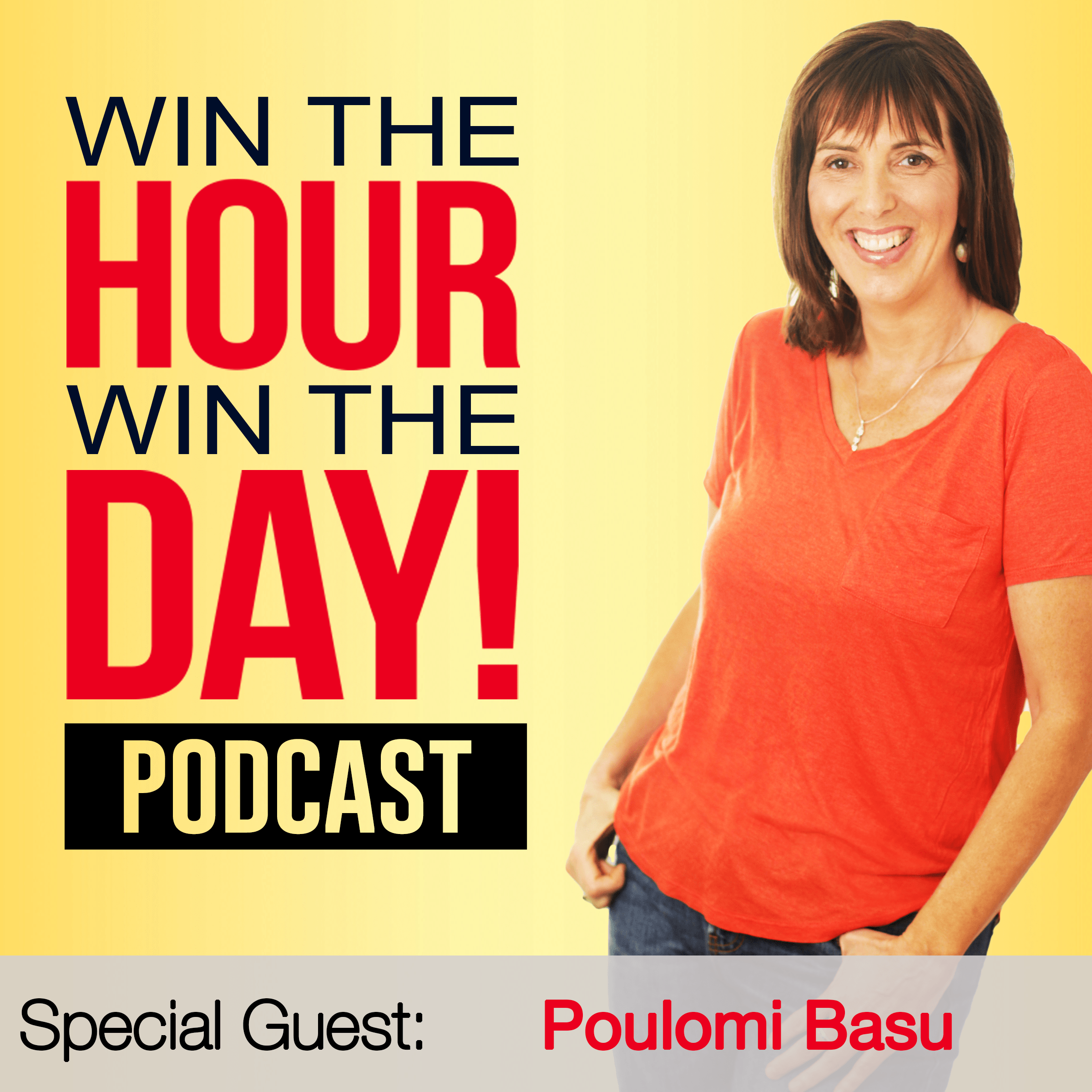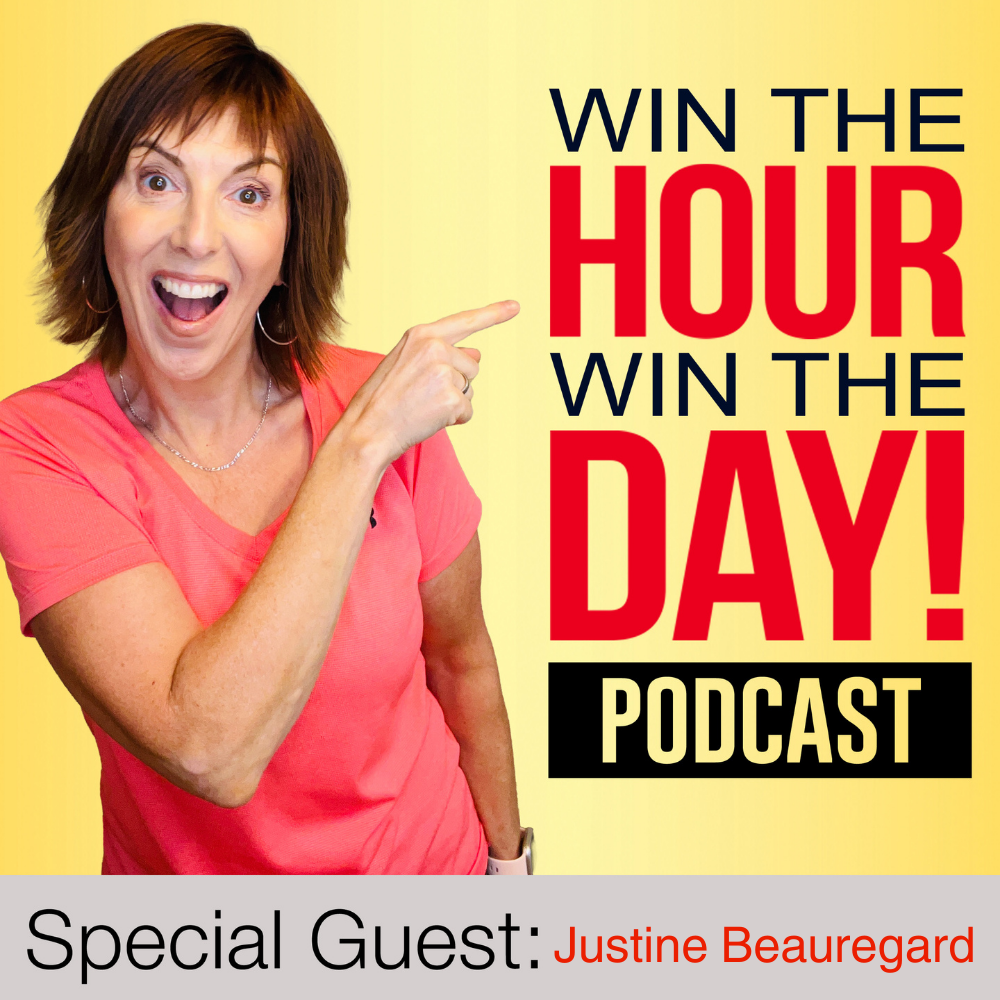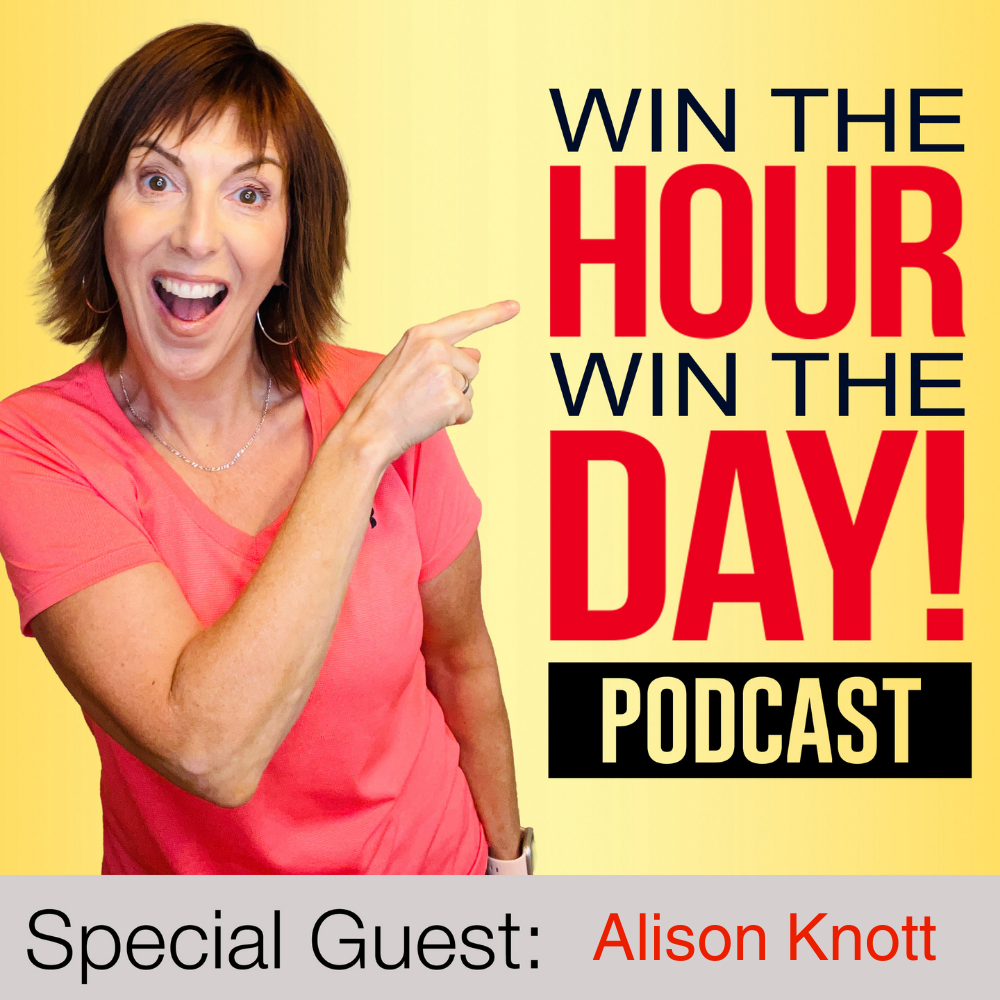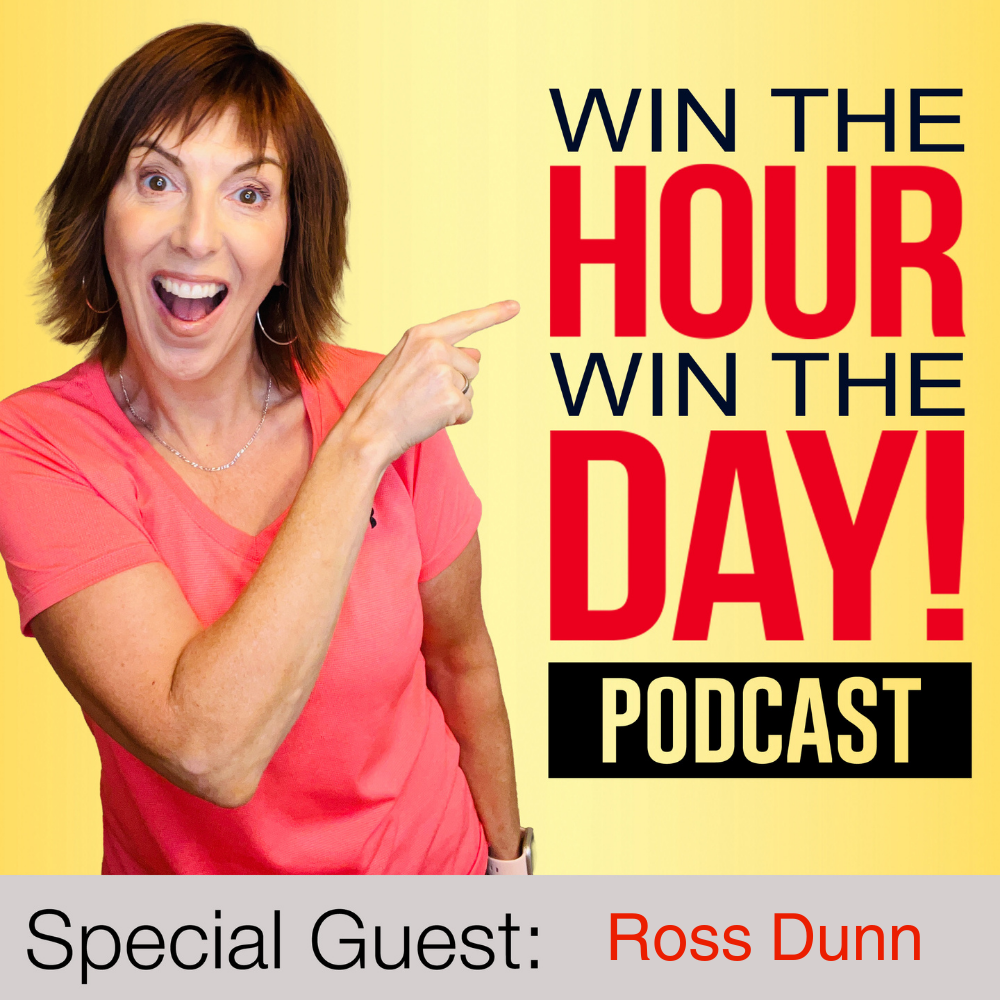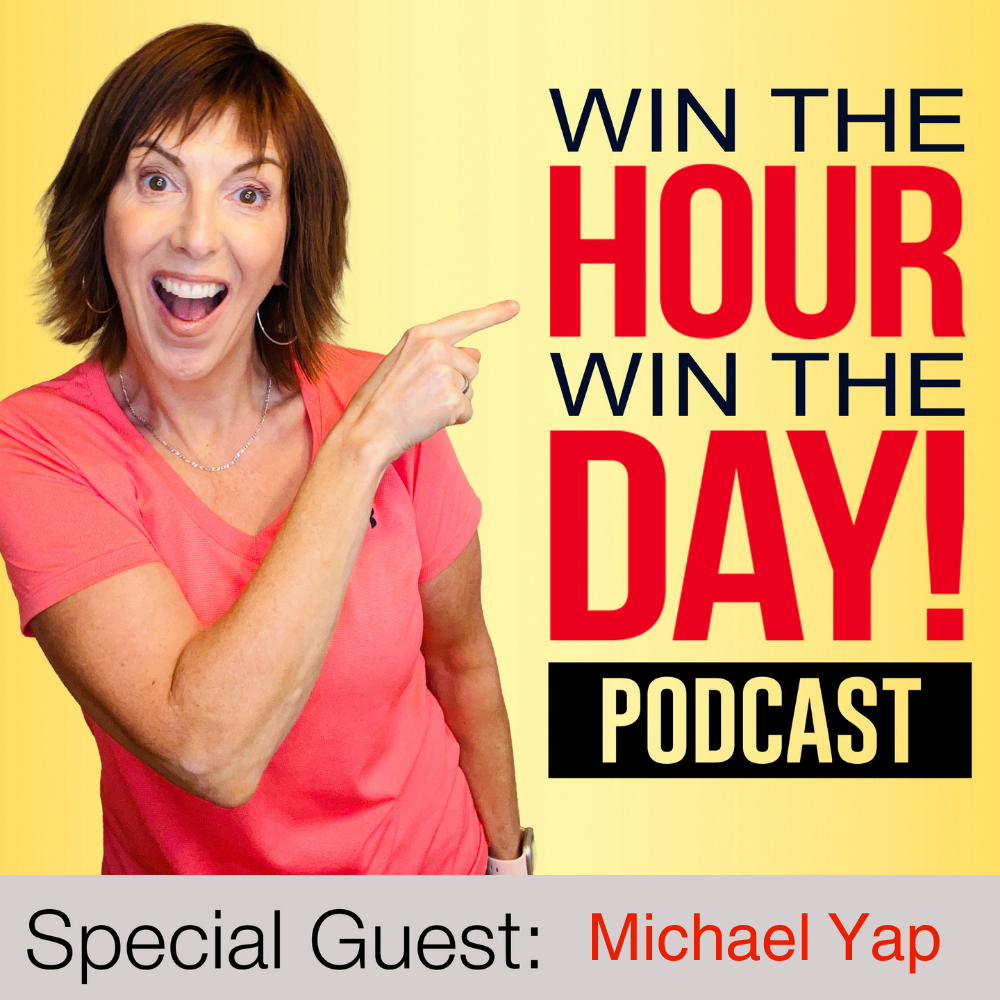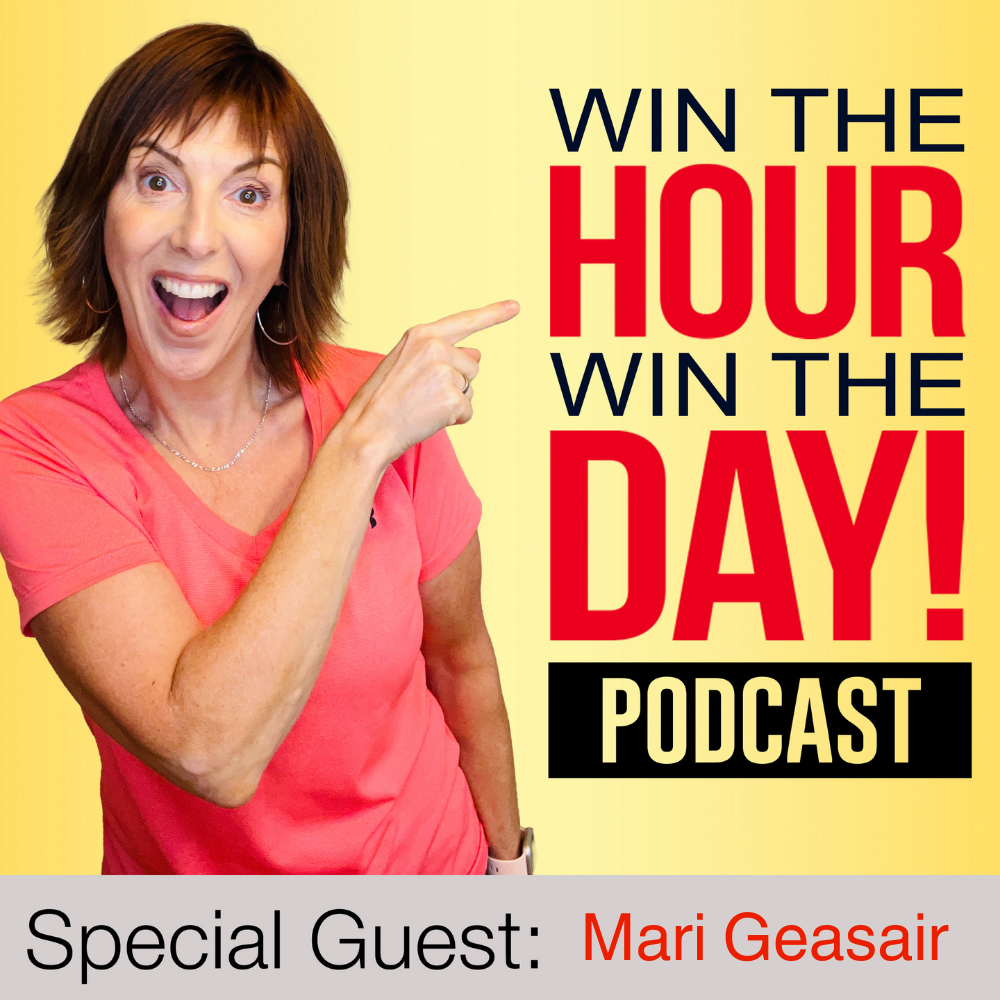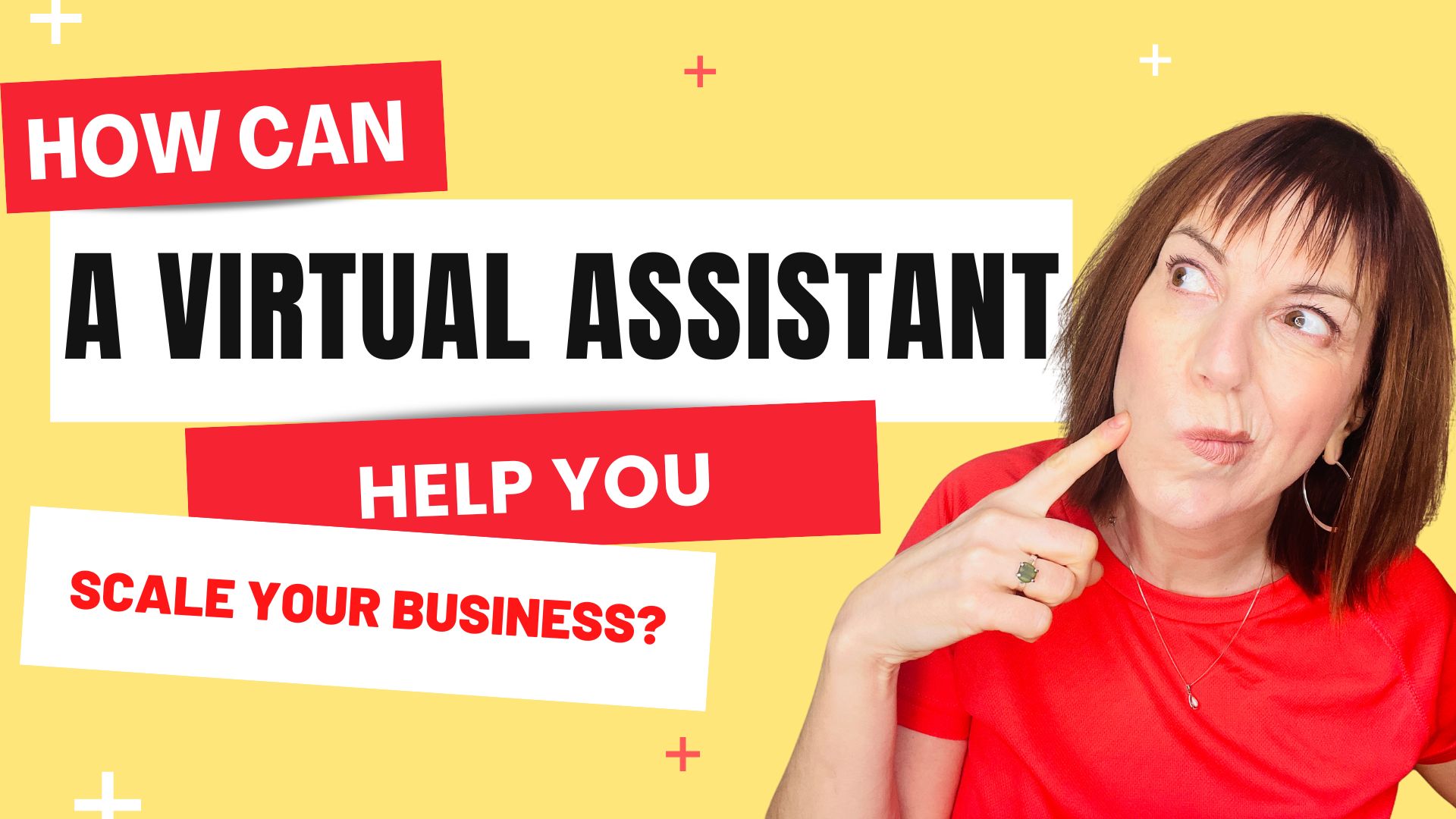Episode Summary
Poulomi Basu schools us on how to get and keep Google’s attention! Yes! How to get in front of more eyeballs and stay there!
Learn the:
-4 Key factors Google considers
-how to make old content relevant again!
– what Google looks for in content and why!
And so much more!
Win The Hour, Win The Day Winners Circle
https://winthehourwintheday.com/winners-circle-masterclass
Win The Hour, Win The Day! www.winthehourwintheday.com
Podcast: Win The Hour, Win The Day Podcast
Facebook: https://www.facebook.com/winthehourwintheday/
LinkedIn: https://www.linkedin.com/company/win-the-hour-win-the-day-podcast
You can find Poulomi Basu at:
Website: https://weignitegrowth.com/
Facebook: https://www.facebook.com/weignitegrowth
Email: pbasu@weignitegrowth.com
LinkedIn: https://www.linkedin.com/in/brandpoulomi/
Win The Hour Win The Day
https://winthehourwintheday.com
Poulomi Basu Podcast Transcription
[00:12:40]Kris Ward: Hey, everyone. Welcome to another episode of Win The Hour, Win The Day Podcast. I am your host Kris Ward, and today we have Poulomi Basu in the house and she’s going to talk to us. She is an SEO and content specialist. So those two are very important. Now, listen, this may not sound interesting, but she’s going to make it interesting.
[00:13:02] She’s going to tell us how, when we take the time and the effort to put things out, you know, whether it’s social media and Google and all that stuff, how these things get found and why it’s so important because I, I don’t know, but you guys, but for me, SEO can just sound like a hundred different ways that I can fail and give me a headache.
[00:13:19] So I promise, or I’ve made Poulomi promise that we’re going to keep this high level and not get too techie and give ourselves that instant headache I start getting when people talk to me about keywords and SEO, so welcome to the show, Poulomi.
[00:13:34]Poulomi Basu:Thank you so much, Kris. And thank you for having me here. It’s really, you know, my pleasure to help out.
[00:13:40] And as you said, yes, so we will talk about SEO and content. And I promise as I promised you earlier to keep it as simple and as high level as possible, but at the same time, also give some constructive tips that people can actually take away and put into action. And I hope it helps them. I’m sure it will.
[00:14:00]Kris Ward: Where do you want to start? Tell us where you want to start, Poulomi.
[00:14:03]Poulomi Basu: I think let’s start at the beginning, which is a very fundamental understanding of SEO. Right?
[00:14:09]Kris Ward: Let’s start at the beginning. What a good tip. Let’s start at the beginning. Okay. All right. So what you’re right. Not, not so much at the beginning, but let’s start with the basics.
[00:14:17] What is a seed?
[00:14:20]Poulomi Basu: Right. So if you look at it very simply as SEO is you say you have a business and you have your audience and you want your website to show up in Google. And there are lots of search engines, but I’m just talking to Google right now. So you want to try to show up in the top few searches when people, your audience is actually looking for something, right.
[00:14:41] And when they are looking, they are typing something in. So you want to show up when they are looking for whatever they’re typing. Right. Okay. So that is organic by which I mean it’s not paid. You cannot pay Google. You can do ads with Google, which is a very different thing. And then you will be on the top, but this isn’t about nonpayment, nothing, just organic searches.
[00:15:05] So that is how that is the simplest way to define SEO. Right. Okay. Yeah. So what I can add to that is, how does it work? Right? How does SEO work and how does Google rank you? Now, I don’t think anyone knows exactly how Google ranks you. They have hundreds and thousands of factors that they consider.
[00:15:25] I think at one place I read there were more than 200 primary factors, but let’s look at four key factors that Google considers. When to, when to determine who to rank and where to rank in which position. Okay. Okay. So first is relevance. So how accurately does your website or a certain page of your website match what the user is typing?
[00:15:51] Okay. It’s simple. Okay. And that Google understands from a lot of different factors, but that’s, but let’s forget that the first thing is relevance. Secondly, is how good the quality is of your page. So you can have something and you can put a lot of keywords in it and do a lot of work. But if your page is not answering what people are looking for.
Then Google will automatically push you down. So the quality of what you write and what you put on your website has to be really impressive. Okay. Okay. Third is authority. Okay. How accurate and reliable Google thinks your page is. Okay. And again, this is determined by a lot of different factors, but one
[00:16:34] Primary factor is, for example, how many websites are linking to you? Okay. So if you have, that’s why when you have big websites, like say entrepreneurial.com or any of these, you know, small business or a forbes.com, you have so many people linking to them that Google automatically thinks, Hey, this is a high quality website. So Google needs to know that you are an authority on the topic that you’re writing about.
[00:17:00]Kris Ward: Let me jump in here. So when we talk about websites, I know a lot of the modern trends too, like, you know, we were just doing a masterclass. So we have a sales page, which, you know, comes from a funnel and that’s different from a website.
[00:17:14] So now is it because we’re being very purposeful that I’m putting that in front of a warm audience and this is where I want them to go or are we really totally missing out all the time when we just only have the sales page?
[00:17:29]Poulomi Basu: Well, if you have a sales, if you just have one page, one landing page, which is highly optimized for, you know, all the searches and how Google thinks it is possible to rank high, but Google does not look at your page in silo.
[00:17:44] It looks at all the other factors. So it looks at a lot. The biggest factor for Google is linking. Okay. How many pages are linking to you? How many pages are you linking out to? So it’s not a standalone page. So I would suggest that even if you do have a landing page, you have a sales page, you have a website, you put it on your website and fill the other pages with content.
[00:18:08] Which is relevant to your sales page and link back to the sales page, right? The sales page is what in SEO, we call let’s say the money page. Okay. So that is where you are, you know, your money will come in, but you need other reps, other pages that will direct Google to go to that page and get more information. Okay. If it’s just a standalone page, it doesn’t generate much traction in Google.
[00:18:35]Kris Ward: So, for example, let’s say, okay. On the masterclass. So we were just doing, we’re doing this masterclass group coaching thing. It’s a new product for us. It gives more people more access at a lower price point to help them build their WIN team and really be in that 60/40 formula, 60% creation, 40% admin and save 80, 90%.
[00:18:56] So now let’s say I made the sales page for that, and then I have other pages or on the bottom of the sales page, I might have, let’s say Kevin Carrington was on my podcast or I was on other podcast, social proofs, or I’ve got all these, you know, high-quality reviews about my podcast or different things, just showing social proof of the quality of my work.
[00:19:15] And they are linking two different things. So that will work there. And, but then I can have other pages with fillers, like, you know, maybe talking about, I dunno, my journeys, entrepreneur and linking to other pages on page two, three or four, that just support what my sales page is about, but I could get some backlinks there.
[00:19:35]Poulomi Basu: Yes. So there are two kinds of links that you can consider. One is internal links. So bury your other pages, your content pages, your about pages are linking back to your money page to your sales page. So that is internal linking. Okay. Provide them your sales page. So, for example, your website has winthehourwintheday.com.
[00:19:54] Right? So now your sales is a masterclass page. Is it on your website? Does it have the same domain name? Does it have, for example, winthehourwintheday.com/masterclass, is it something like that?
[00:20:08]Kris Ward: I didn’t actually set it up. It could improve, you know what? We just slapped it up pretty quickly. I would say no, but we could have it and give a direct link.
[00:20:17]Poulomi Basu: Yes. So what would help is, for example, you’re winthehourwintheday.com and I’m just taking your website because you’re on it, right? Sure. Right. So you have a lot of different pages, right? You have some content pages, you have some sales, you have some about you. So if you have those pages linking to your master class page, which is on your website, it has a much higher value than if you have a separate domain on a separate URL completely.
[00:20:42] Okay. And these are internal links. And then you have the external links, which is the back link, which is about other websites linking to your sales page. It is good to have direct links to your sales page from other backlinks, but what Google really, really likes is content. Okay. Which is why. SEO and content are inseparable.
[00:21:05] So sometimes what works even better is if you get backlinks from other rep sites to your content page, and then your content page links to your sales page, because then what Google realizes is at the top of your priority list is providing value for the audience through content. It’s not sales. Okay. Now people, it could be that people are looking for a specific masterclass on sales, et cetera, but.
[00:21:32] As you said you have social proof and all of that people need to trust you. People will trust you if you have more content. Google will trust you if you have more content. Okay. So half content pages and link it to sales pages have external websites linking to, you can have it link into your sales page.
[00:21:48] That’s good, but also your content page.
[00:21:51]Kris Ward: Okay. So now I know the quality of these links and the ranking, all that matters too. But so for example, when I’m on other podcasts, I’m on a lot of other podcasts. Does that lean into the fact that if we’ve got the links on one of our pages that links into the fact that I’m an authority and that I’m linked to all these other pages?
[00:22:10] Yes. So if you’re appearing on another podcast and they are talking about you there and they’re put in a link to your website, to your homepage or your content, whatever. Then there is definitely high authority there. You know, Google knows that a lot of people play, websites are linking back to you, but again, there is.
[00:22:31] It also matters to Google who was linking to you. Right? So that’s why a lot of people do the mistake of trying to build these links. They go to fiber, you know, and you know, fiber.com, right. And then a lot of these freelancers and they say, oh, I can build hundreds of links for you. It’s a trap. Those are all spam.
[00:22:50] Those are all no go. I would definitely recommend against it. Okay. Do not trust anyone who tells you, I can give you hundreds of links in a week and I can make you rank in the top page of Google in one week. That’s not going to happen.
[00:23:02]Kris Ward: No, you can’t buy friends and you can’t buy credentials. So not to split here. So, but if somebody sends me a link, because I was on their show and we posted on my page, really it’s a link. They’re not linking it to my page. I have a link about me on their page. So it’s a link from me to them versus the other way around. But is that still effective? That’s still worth its salt.
[00:23:24]Poulomi Basu: It does, it does affect it. It is good when you link out, but it’s so when you write your content and you link out to other high authority websites, Google likes that, but it’s, I would say usually more important, who links to you. Think of a back link as a referral. Okay. So let’s say you want to introduce me. You want to tell, you know, sell me to someone or somebody wants to trust me.
[00:23:53] Instead of finding me directly, if you introduce me to someone, right. And they say, Hey, she’s brilliant at what she does. Right. It’s exactly that. So it’s a website telling Google, I trust this, this web, this entrepreneur. So that’s why I’m linking out.
[00:24:09]Kris Ward: Okay. So it’s like a referral. It’s like a referral. And in this case it is better to receive than to give.
[00:24:16]Poulomi Basu: Yes. Okay. Especially like all content pages, but you should also link out externally. Right, right. You should also have some external links, but internally backlinks are very, very important.
[00:24:29]Kris Ward: Okay. So I interrupted you. We were talking about the four key factors. We did relevance, good quality, authority and then I dove in, asked you a bunch of questions, which just means we’re having a good time and we’re unpacking your brilliance. So what’s the fourth one?
[00:24:43]Poulomi Basu: User Experience. Okay. Right. That’s why you, I see a lot of websites, even from entrepreneurs, you know, they just set up a basic website, like one page, and it’s not really clear.
[00:24:55] It’s not presented in a nice way that you actually want to spend some time on the website. Our website is not just about putting up your services and talking about me and that’s it. You know, I need to be able to browse through the website easily. So navigational, it needs to look good. It needs to load fast.
[00:25:13] It needs to be secure. So really a website that you would want to go back to. I’m sure you’ve also seen some websites, which you can’t wait to get out of.
[00:25:35]Kris Ward: And you know what? Is it for design or I guess it’s purposeful, like sometimes more and more. Even with bigger companies, you have to dig deep and dig hard to get a “contact us” number or some way to reach them. Right.
[00:25:35] And obviously they must be doing that deliberately because they’ve got the money. But does that not strike against them? Like, or it’s more retention on the page? Cause I’m there longer trying to find a gosh darn number.
[00:25:47]Poulomi So it depends on how big the website is. Now. Let’s say you take a website, like, I dunno it Kia for example, or an Amazon, right?
[00:25:55] Okay. These are the giant mega websites and they have so many people reaching out to them that unless they automate the system and they stay away as much. And they, you know, like put up chat bots and things like that, as much as possible, they will be over flooded, but that’s fine. Because people will go to the website anyway.
[00:26:13] Okay. But if you are a service entrepreneur and your website is not that high, it doesn’t have such a high authority. You’re still starting off or you’re in the mid stages. And you know, you’re building it up. I would suggest, be easy to reach. Now, a lot of the reasons why people don’t give their contact numbers or their email addresses directly is because of Spam because you get a lot of these, you know, chatbots like spam emails and things like that.
Right? So, but again, you can put in a plugin or whatever to avoid that spam, but still just make it easy for people to at least fill up a form and reach you. You know, just, and one good thing that works a lot because people don’t want to really email nowadays is to put your social profiles so people can just reach you through Twitter, for example.
[00:27:00] Right. Right. That’s much safer than putting a phone number out there. Good point. Okay. Yeah. I don’t put my phone number out mostly because I’m in meetings. Like I just am not sitting the day is passed for you’re sitting there answering the phone all day. Like it’s not pizza. Right. Okay. So those are the key factors.
[00:27:15]Kris Ward: So do we want to dive into the more but not too far, but, or do you want to tell some of the biggest mistakes you see out there all the time dealing with this.
[00:27:25]Poulomi Basu: Well there are too many mistakes, you know, so, I think the real, the most important thing to consider is. The expectations. And I talked about this last time with you, is that SEO is not something that you started working on today and you see results tomorrow. You’ve got to have patience and you’ve got to put in the work. You know, people, sometimes I see entrepreneurs doing it for some time and they get frustrated that nothing is happening.
[00:27:56] It’s not going up. You know, I was reading a report the other day that said that the sum of sometimes the best content on the top few searches on Google for content, for example, at three years old, things are the more so that the more regular you are with your content and with your updating of the website and keeping it top notch.
[00:28:19] And the more patience you have, the better for you, the results will come. But you’ve got to keep at it. If you do it, if you do like one blog post a month or one, maybe it depends. If it’s a big blog post, once is also okay. But if you let’s say you do one blog post, blog posts in six months, and then you expect something to happen.
[00:28:37] That’s not going to happen. Google likes fresh content, Google likes regularly updated websites. It looks at the dates actually on your website. Okay. So the more the fresher content will show up first. Okay. Great. So one thing that people also don’t do is, you know, you have some content that maybe you published like two years ago or one year ago.
[00:28:58] Okay. s. So keep working at it. Right.
[00:29:10]Kris Ward: Okay. So let’s say I did a blog whatever a year ago, and I did the five tips on building your dream team, the perfect hire for your business.
[00:29:18] I could go back. Do I change it to the seven tips or do I revisit and make change, upgrade to the tips or do I add at the bottom and say, you know what, when I wrote this, it was really impactful, but after what’s happened in the world, this is some other things I think are really important. Like which, which date, wait, is Google like at best? Or does it matter?
[00:29:37]Poulomi Basu: Look, I think for one second, let’s keep Google aside. Okay. Let’s look at your audience, right? So you did, you brought some tips for your audience to manage their time, do their work better, more efficiently right now you go back and look at it and you think, okay, what else can I add that I have, for example, that you have learned with your experience in the last year and you think will be relevant for that.
[00:29:59] Okay. For Google, the most important thing is the user and for us too, right? I mean the user will work. Is the person who will bring us money. So the user has to be at the core. Okay. So fundamentally, how much more value can you add? Okay. Which also translates to usually longer content, Google loves in depth content, you know, at one point used to have these 500 word articles, which were already even 200, 300 word articles, which just skims the surface that does not work for Google.
There are billions of such pages out there. The more in-depth you can make it, the more self-sufficient a piece you can make on that topic. The more Google likes it. Okay. So that is how, you know, if that’s a generic way, I understand, but that’s.
[00:30:50] You know, that’s one way of looking at it. The second is a more technical part. Okay. Which is more about looking at the keywords. What are the keywords that you, that that page ranks for? Okay. Let’s say you rank for a page, sorry for a keyword. Says, manage your time or I’m just making this right here.
[00:31:10] Right? So now you can look at, you can type on Google, manage your time, or you can type in best as to use an SEO software. I would highly recommend that. Just put it on there and see who shows, shows up. Okay. Which pieces, which pages are better than you and what are they writing about? When were they updated? Why are they better than you? Right. So that will give you an idea on how you can optimize your content. More. Okay. All right.
[00:31:39]Kris Ward: I think this is really important stuff, because I think because Google is such a beast, you kind of go, oh, you know what? I’m like, you would, at any time, I’ve talked to some about SEO, it gets so tech so quick that you get lost and you think, you know, I’ll never get to it.
[00:31:54] And then you just go back to. Nothing is better than giving me a headache. And really you are simplifying it here today. It just reminds us how important it is. But I think we often feel like, oh, the magic of Google is never going to find a little person like me, or you get trampled in, in the big Amazon world stuff.
So simplifying like this just refreshes. It’s very basic. You want to be the answer when people key in something and yeah. So you can go back and update a blog and you can change the keywords. And it’s all very simple, but I think for us who are not tech inclined like yourself, or don’t have a passion for that, it gets really heavy really quickly.
[00:32:32] Like even when I cautioned you, when we were talking, I’m like, okay, you can’t get heavy. Really? You got, just keep this high road. Because you start talking about all these HTML’s and back like it just gets overwhelming. So I think the simplicity of it, we forget the simplicity of it. Because we get lost in the metrics.
[00:32:50]Poulomi Basu: Yes, which is another mistake that, you know, people do. For example, many of my clients have this WordPress website and they install an SEO plugin, right? Like your store rank math or whatever. And they want to get the highest scores because they think if they get a hundred or 100 on that score, then they will show up in Google.
[00:33:11] It does not work that way. These SEO plugins will just tell you, you know, whether, if you put in this keyword, if you have done the certain technical things right. But that is a very, very small element of what you actually need to show up in Google. Okay. The most important thing is deliver value.
[00:33:31] As we said in those first four points, relevance, quality, authority. This is what Google wants right now. But one thing that I would add here is it’s not to get technical, but when you’re doing your keyword research and I know many people do that keyword research is to understand the search intent. This is the word that we, this is the phrase that we use in Google.
[00:33:54] When people are typing something, what are they actually looking for? Because we don’t type in full sentences, you know, light. We just type some put in a bunch of words and we expect Google to make sense of it and show me what I’m actually, what is in my head, but what is in my head, I’m tight with spelling mistakes.
[00:34:15] Don’t keep deaf. I didn’t even spell it, right? Yeah, exactly. But Google says, did you mean this? And Google then tries to give you a bunch of search results and sometimes you’re like, No, that’s not what I’m looking for. Okay. And then you change the search, what you type in, and then you get to where you actually want to get to.
[00:34:32] Right. So when you’re doing your keyword research, try to understand what people are actually looking for when they are typing this. Okay. Secondly, what other pages that are showing up on the first, let’s say five searches when somebody is typing this, because that will give you an indication of what Google thinks they are looking for.
[00:34:55] Right. So, I mean, there are different kinds of search intent, and I don’t want to go into it because it again makes it very confusing. But mostly the thing to remember is if I just make it very simple, are there informational searches and there are what we call commercial or transactional searches. So an example of information searches is how to do whatever.
[00:35:18] Okay. People are not looking to buy in the scheme. They just want to know how to solve a problem. Right. Okay. And this is where your content, your blog posts come in. So you help them to do something on their own. Right. And a commercial search would be something like apple versus Samsung latest phone.
[00:35:40] Okay, so they kind of maybe want to buy, but they’re digging deeper. So it’s investigation into certain products. Okay. So, or for example, people might be looking for, um, let’s say marketing service packages. Okay. Those are more commercial. Those are the keywords, your sales pages, your landing pages. These are the kind of keywords you should focus on. Right? But let me do a blog for or providing a service.
[00:36:09]Kris Ward: Could it be like how to hire an outsourcer, how to start your team, how to work less. So are those, does it matter whether those are information or commercial, because really we’re trying to solve a problem, but educate them where to go next. Right. So what you could do is.
[00:36:26] Usually a very good model that works is you have a sales page dedicated to a course or something that you’re selling, but you have a piece of content also on the same topic, right. Now, you optimize your content page more about how to do that. And then you link it to your sales page, which is more optimized for the commercial page, for the commercial keywords. So really understanding the search intent is very important.
[00:36:54]Kris Ward: Okay. And I actually, we do that and I know that, but when you split the categories into two, I got lost. I was in your world. I was like, I don’t know which way to go. Okay. That makes sense. Yeah. Okay. There are actually four, but I didn’t mention the other two.
[00:37:04] Okay. All right. Well, you can mention the other two quickly. If you want. We got a few minutes left. We can whiz through them.
[00:37:10] Okay. So the other two are, well, basically one is what we call navigational. It’s like, you know, you want to find a website that you visited before. You put Ikea in Google, your website, you’re just not sure which thing.
[00:37:24] So it’s usually branded. Okay. It’s usually good websites that you’re just looking to go back to. Navigational. So those are not, especially if you don’t have a big website, those are not, you know, that relevant. The other kind of keyword is transactional, which is where this is your buy, buy a product sale.
[00:37:45] Where do I buy this? Outlets that sell this discount coupon. This is all when people are at the end of the customer journey, they want to buy exactly for that place. There’s just no more information on those. Those stages are over. Okay. Yeah. But that is something also that you can put on your landing page, but for service entrepreneurs, it’s not that relevant because you can say buy your course, but usually you say sign up for the course, right? You don’t say buy a course, but for product entrepreneurs, those are more relevant.
[00:38:18]Kris Ward: Okay, boy, that’s awesome. Okay. I don’t need, I don’t need, I think I need to go lay down, but this thing is. I think what it is, is you did really help and you brought clarity. And I, you know, I was hesitant about this.
[00:38:33] People have to work really hard to get on my show because I want you guys to really have solid takeaways, solid, solid takeaways. And you guys are fantastic. You’re constantly giving me reviews and telling me exactly what you like. And I read every single one of them. I am so thankful when you take the time to fill that out.
[00:38:49] And people tell me all the time that they love when they listen to the show and they get solid takeaways and plummet mostly because you’re so smart. I thought, oh, I don’t know about this. Cause you just didn’t deep dive really quickly, but it was really a good overview because you get so lost in the metrics and the analytics and Google being this big, scary monster.
[00:39:09] Right. That you just forget common sense. Like you start diving deep and you forget where you see where you started. Right. So I think this was a really fantastic refresher to remind us what, for me, I would say. Like, I did know that, but I was putting it in the wrong category or some things I knew, but I forgot I knew.
And other things it’s like, oh, if you recycle this or we dissect this, that’s a whole brand new bucket of knowledge. So, so awesome stuff. Thank you so much. Where can people find more of your brilliance?
[00:39:37]Poulomi Basu: Well, there is my website on which I write a ton of blog posts and those are usually yeah. In depth. So I would suggest if they have any questions, because I also try to make it, you know, when I write a blog post, I try to make it some simplified into questions, like, okay, how can I do this? Where do I find that? And I try to simplify it. Maybe it’s not as simplified as people want, but it’s a start. And of course, if they have any questions, they can just connect to me on my website. And I’m on social media, all kinds of social media. So, okay. We will make Twitter as well. And Pinterest.
[00:40:13]Kris Ward: we will make sure your links are in the show and we thank you so very much and everyone else we’ll see you in the next episode.
[00:40:21]Poulomi Basu: Thank you very much, Kris. It was really good being here. [00:40:25]

